Iran Had Access To Private Info Of Facebook Users: Documents

Released documents show that Iran, along with Russia, China and some other authoritarian governments had access to the private data of Fabcebook users.

Released documents show that Iran, along with Russia, China and some other authoritarian governments had access to the private data of Fabcebook users.
Internal documents in a related privacylitigation that emerged late last month have trigged the chairs of the US Senate Select Committee on Intelligence, Mark Warner and Marco Rubio, to write a letter to Meta’s Mark Zuckerberg asking fresh questions about what he and his company knew about how much user data the platform was leaking in previous years.
“It appears from these documents that Facebook has known, since at least September 2018, that hundreds of thousands of developers in countries Facebook characterized as “high-risk,” including the People’s Republic of China (PRC), had access to significant amounts of sensitive user data,” they write.
In the so-called "Cambridge Analytica" scandal, Facebook clearly violated the privacy of its users, allowing developers to access their private data without their consent.
An employee of Facebook’s consulting company Cambridge Analytica revealed information that led to its founder Mark Zucherberg being hauled in front of Congress and finally paid a $5 billion settlement over ‘privacy lapses’.
The Islamic Republic of Iran has a long history of abusing social media platforms to advance its policies.
Iranian activists in 2022 accused Instagram that its moderators were blocking posts critical of the regime. A former employee of a German company working for Instagram said the Iranian security apparatus offered to pay him money in exchange for blocking some accounts.

Iran’s foreign minister says no journalist was arrested during the past five months of protests, claiming that "We cannot confirm the detention of journalists in Iran.”
Hossein Amir-Abdollahian stated in an interview with National Public Radio in the United States on Wednesday that “It's very easy to relabel the person who has been detained. You could, at any moment, call that person in question a defendant of human rights, a journalist, among others.”
Numerous reports by human rights groups, activists and media have said that at least 60 Iranian journalists were arrested since late September, and many are still behind bars.
He once again blamed the West for staging the protests following the death in custody of Mahsa Amini saying that they “carefully” and “meticulously” targeted the “riots”.
He also alleged that no students were detained at the universities or premises of the universities during the riots, while not only many were arrested but some were even killed during protests. Hundreds of Iranian professors demanded the release of students in November.
Referring to the recent release of prisoners after Supreme Leader Ali Khamenei’s pardon, Amir-Abdollahian claimed Khamenei pays special attention to the issue of clemency. Khamenei’s partial pardon came after thousands of people were arrested and kept behind bars for months without due process of law.
Elsewhere in his remarks, Amir-Abdollahian asserted that there is democracy in Iran and people can freely voice their views.
Two journalists, Niloufar Hamedi and Elaheh Mohammadi, who had reported Mahsa Amini’s death have been in prison for more than 100 days.
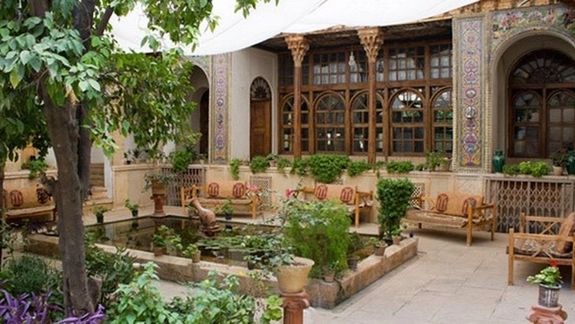
The government’s plans to demolish tens of historic houses in the ancient city of Shiraz to expand Shia shrines has outraged many Iranians.
Media reported earlier this week that residents of the historic houses marked for demolition in the vicinity of the shrines have been given an ultimatum by the authorities and the municipality’s contractor to evacuate immediately as the demolition work was soon to begin. Several of these houses which date back to Zand (1751-1779) and Qajar (1789-1925) periods have been listed as national heritage sites.
The plan to expand the Shah-e Cheragh shrine is meant to transform Shiraz from a destination for historic tourism to a pilgrimage destination, Mohammadreza Javadi-Yeganeh, a professor of sociology at Tehran University tweeted. “[They are] targeting the Iranian [national] identity again [as opposed to Islamic Shiite],” he wrote while criticizing the manner of appropriation of the properties which he said amounted to robbing the owners.
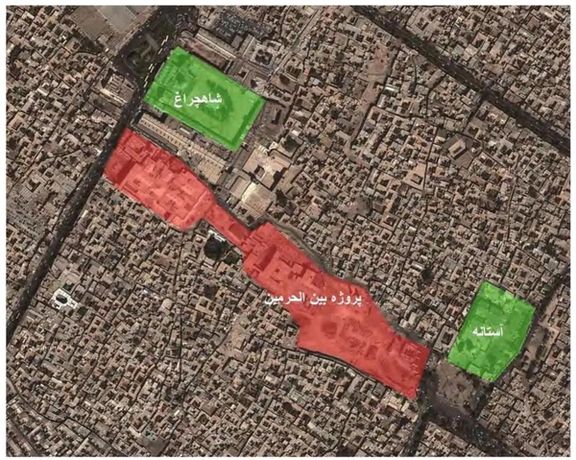
Nasir Farrokh-Mehr who is the secretary of the National Campaign to Save the Historic Structures of Shiraz, said locals are planning to rally Thursday in the area to prevent what they call a cultural disaster.
The campaign had petitioned the minister of cultural heritage Ezzatollah Zarghami last year to order the historic buildings within the confines of the area to be surveyed and listed as cultural heritage before any final decisions were made.
In its online petition which over 17,000 have signed, the campaign said many of the city’s invaluable historic buildings had been destroyed in the past few decades on the grounds that they were not listed and that influential entities had obstructed the listing of the many buildings that fell within the confines of the are to be destroyed to expand the shrine.
Zarghami said last year that the plans to expand Shah-e Cheragh, which were first proposed a few years after the Islamic Revolution of 1979, were to be reviewed by various government agencies. The plans now seem to have been set in motion following President Ebrahim Raisi’s decision during a visit to the city a few months ago to expedite the project.
Etemad newspaper warned Monday that there is evidence that the plan to expand the shrine “to make Shiraz the biggest pilgrims’ destination in the Middle East” would affect 360 hectares of the historic structure of the city.
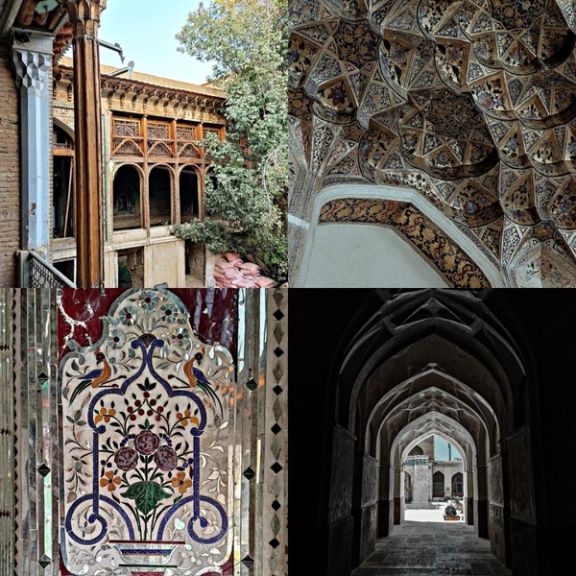
Shah-e-Cheragh is a mosque and the mausoleum of two of the brothers of the eighth Shia imam, Imam Reza, who is himself buried in the northeastern city of Mashhad. The tombs turned into a pilgrimage site in the 14th century when a mosque and theological school were built in their vicinity.
Imam Reza’s shrine has several times been expanded during the Pahlavi era and after the Islamic Revolution and many of the historic neighborhoods around it have vanished. Much of the surrounding neighbourhoods of Shah-e Cheragh have likewise been demolished in the past few decades, as late as four years ago, to build connecting roads and facilities to serve pilgrims.
Shiraz is one of Iran's most popular tourist sites for foreign tourists and Iranians alike. Pasargade and Persepolis, about 60 km to the north of Shiraz, which date back to the Achaemenid period (559 BC-330 BC), and the tombs of two of Iran's most famous poets, Hafez Shirazi (1325–1390) and Saadi Shirazi (1210 – 1291) are among the city’s most visited sites.
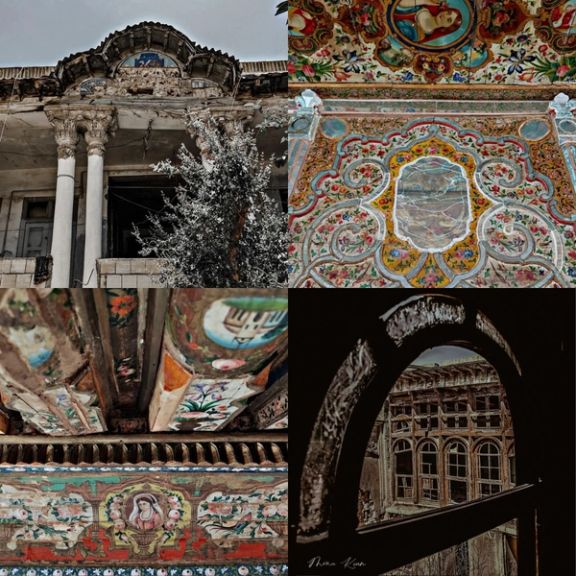
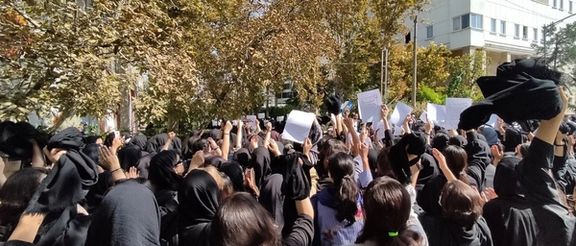
A letter leaked by a hacktivist group to Iran International reveals details about the rape of two female protesters, aged 18 and 23, by IRGC agents.
Obtained by the hacktivist group Edalat-e Ali (Ali's Justice), the document clearly shows how the Iranian government’s repression machine covers up rape and sexual abuse by its agents.
Edalat-e Ali has been leaking sensitive information about Iran’s security forces and conditions in prisons.
Reports about detained protesters began trickling in in November and since then there have been many victims and families who have disclosed what happened to them.
Alireza Sadeqi and Alireza Hosseini are two IRGC agents referred to in a letter dated October 13, 2022, from Mohammad Shahriari, deputy prosecutor and head of General and Revolutionary Courts, district 27, to Ali Salehi, prosecutor at Tehran General and Revolutionary Courts, about the arrest and the subsequent rape of the two women.

Agents, who rape with impunity
As the deputy prosecutor informs his superior in the letter, the two women contact police station No. 124 in Tehran and report being arrested and then raped by agents on October 3.
Shahriari instantly notes that the two women’s complaint has not been registered after “coordination with Hefa [Persian acronym for the police intelligence agency]”.
It is also mentioned that a person, allegedly an agent, named Alireza Sadeqi has been detained along with his father at their home in Tehran’s Pirouzi street, where loads of batons, ammunitions, bulletproof jackets, police radios, handcuffs, IDs for different organizations such as the Law Enforcement Command (police), IRGC and the Judicial system have been found as well as a hoard of dollar bills and drugs.
Alireza Hosseini, an IRGC captain in charge of the intelligence division of Imam Hassan unit, was also arrested and transferred to a prison belonging to a police intelligence unit, the letter continues, adding that his motorbike had been found in the house of the “accused [previously] detained”.
In the letter it is not clear exactly how the two agents were identified and arrested.
The letter further details how they admitted to raping the two women, with Sadeqi acknowledging that they detained the two women near a gas station while on a mission in Sattarkhan street, in western Tehran.
Superiors ordered them to free the women because at the time there were no facilities available for their detention. Apparently, the accused took the women back to where they were picked up and that is when the rape took place.
Confessing to raping the women, Sadeqi argued that it was one of the women who initiated sexual advances in the car and that he recited “Sigheh”, a private and verbal temporary marriage contract which is supposed to make an intercourse religiously permissible. He also dropped the names of his colleagues, Alireza Hosseini, Hojjat Keivanlou and Ali Shahroudi, alleging that they might have raped the other woman, according to the letter.
Alireza Hosseini, however, refused to admit to any sexual abuse at first, stating that the arrests were made based on suspicions that the women were protesters.
He later confessed to the crime by saying: “I saw Sadeqi speaking to one of the female detainees and advised him to keep his distance. After a couple of minutes, I saw him groping [NAME REDACTED]’s back. I told him to stop but he pushed the second girl, named [NAME REDACTED], towards me. I shook my head in disbelief, wondering what’s going on!’”
His subsequent testimony appears to recount how Sadeqi coerced the woman to have oral sex as he was “standing with the front side of his pants pulled down and [NAME REDACTED] was busy…”.
About his own case, Hosseini pointed the finger at the woman, alleging that she said, “For God’s sake, let us loose,” while undoing his fly.
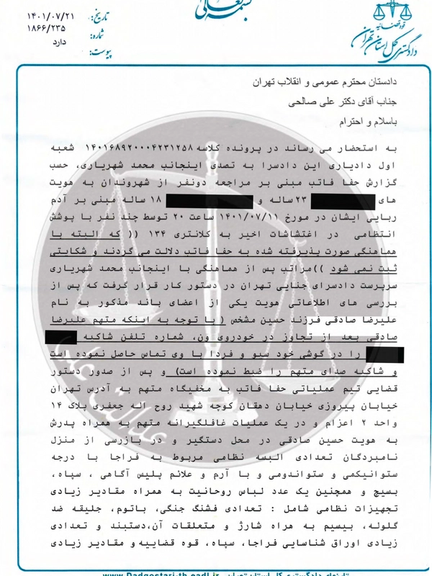
Attempt to defend abusive agents
In a blatant attempt, to understate the agents’ misconduct in the document, the deputy prosecutor concludes that “the defendants merely formed a gang for extortion or abduction and committed criminal acts”. In this part of the letter, terms such as “independent detention centers”, “torturing of people”, “extortion” and “widespread relationship with women and girls” stand out.
The document finally reveals how the Islamic Republic’s repression machine shuts down cases related to sexual misconduct by agents as it reads: “Considering the problematic nature of the case, the possibility of this information being leaked to social media and its misrepresentation by enemy groups, it is recommended that necessary orders be issued for it to be filed in the ‘Top Secret’ category. Since no complaint has been registered and the defendants have been dismissed, it is advised that the case is gradually closed without any reference to the involved military institutions.”
Since mass demonstrations began in Iran in the wake of Mahsa Amini’s death in the hands of the so-called morality police last September, multiple reports have been released, offering evidence of rape and sexual abuse of female protesters from the time of detention to interrogations. There have also been reports suggesting that security forces target women with shotgun fire to their faces, breasts, and genitals.
The latest document adds to a trove of evidence that Iran’s security forces, engaged in torture and sexual violence, can act with impunity to advance the Islamic Republic’s repression of dissent.
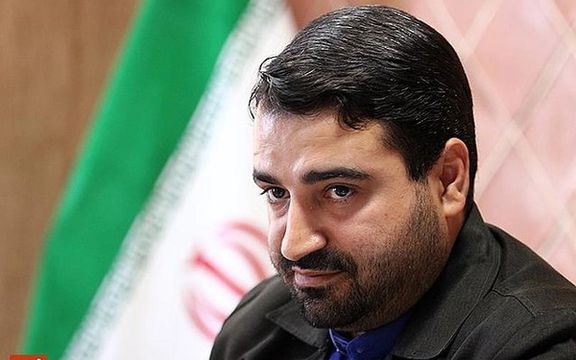
A hardliner supporter of the Iranian regime says those who sell VPNs (virtual private networks) so that others “can watch porn” should be executed for “corruption of the earth.”
Ruhollah Momen-Nasab said in an interview with Ensaf News that if some of those who sell VPNs were hanged, “the others would learn a lesson.”
The government has been severely restricting Internet access in general and access to popular social media platforms, such as Instagram, that play a key role in e-commerce.
The authoritarian regime has been restricting access to many websites for more than two decades, with more restrictions put in place since last year. It is extremely nervous that people use the Internet and social media to share news and images about protests that swept the country since September.
In February, 18 members of an ad hoc parliamentary committee said they had ratified the outlines of a bill to officially restrict internet and social media access.
Earlier, Momen-Nasab, who is a parliamentary special advisor on the so-called 'Legislation to Protect Cyberspace Users' and former commander of the cyber army revealed how Tehran has been using twitter for propaganda.
“We created new accounts on Twitter, using the persona of other Twitter influencers who were mainly counter-revolutionary activists. Ours just differed in a single character and was quite similar to the real one. We used the same picture and the same name, but everything was fake. Once created, we started our activities,” Momen Nasab told the state TV last year.
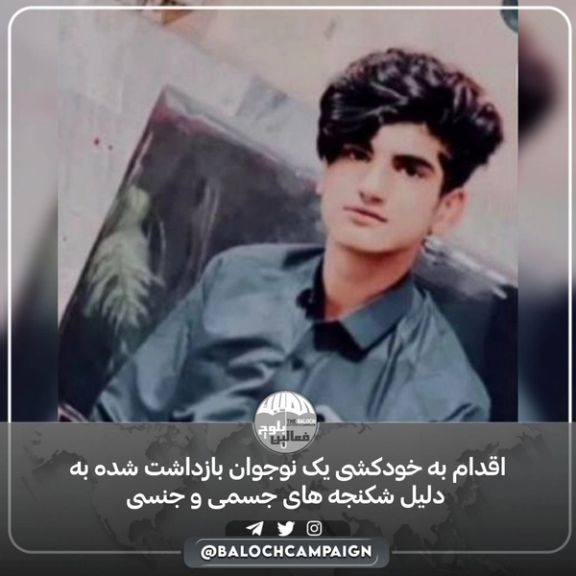
Baluch Activists Campaign say a teenager arrested during protests has attempted suicide in Zahedan prison, southeast of Iran, due to severe physical, sexual and mental torture.
According to the human rights organization, the teenager was arrested by the Revolutionary Gaurd intelligence in Zahedan on January 3, but he tried to take his own life after being severely tortured.
The 16-year-old has been identified as Benyamin Kouhkan, a citizen of Zahedan, the provincial capital of the largely Sistan-Baluchestan province largely populated by Sunnis of Baluch ethnicity.
There have been numerous reports of torture and rape of detained protesters in the past five months. Many have been forced make confessions admitting to crimes they never committed.
An informed source told the Baluch Activist Campaign that Benyamin informed his mother in a phone call that he had been subjected to severe physical and sexual torture to obtain coerced confessions.
According to this source, Benyamin tried to commit suicide after that, but he failed.
Reports about the alleged rape of a 15-year-old Baluch girl in June by a police commander in Chabahar, who has remained immune from prosecution, sparked protests in different areas of Baluchistan in September. The anger over the death of Mahsa Amini in police custody also added fuel to the fire with more than 100 Baluch protesters killed so far and 307 arrested during demonstrations.
Residents of Zahedan have been protesting every Friday after prayers since September 30, 2022.